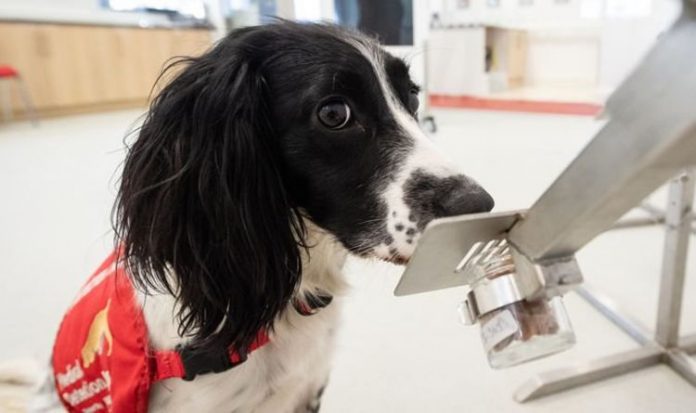In all, teams with the LHSTM hope to collect 325 positive and 675 negative samples.
Professor James Logan, lead researcher for the work and Head of the Department of Disease Control at LSHTM, said off successful, the trial could produce “revolutionary” results.
He said: “Our previous work has shown that malaria has a distinctive odour, and with Medical Detection Dogs, we successfully trained dogs to accurately detect malaria.
“This, combined with the knowledge that respiratory disease can change body odour, makes us hopeful that the dogs can also detect COVID-19.”







